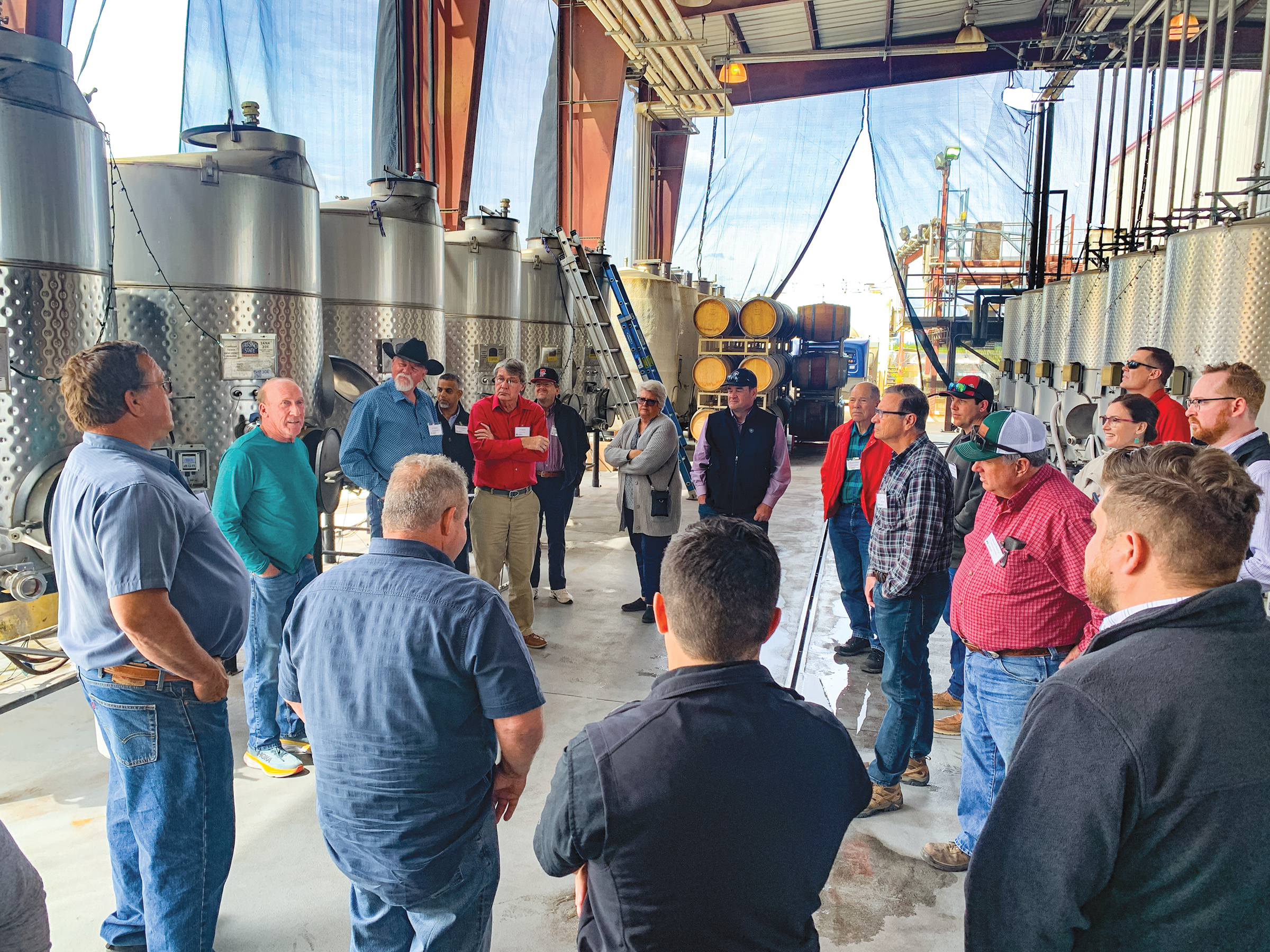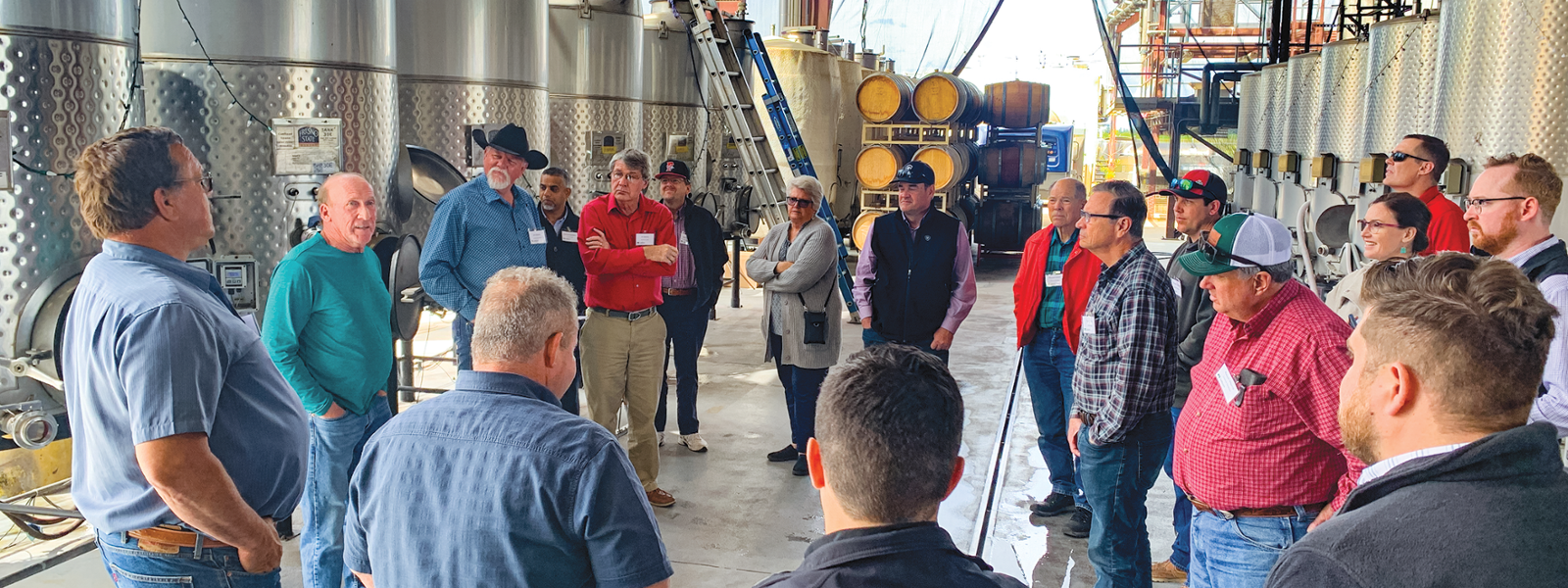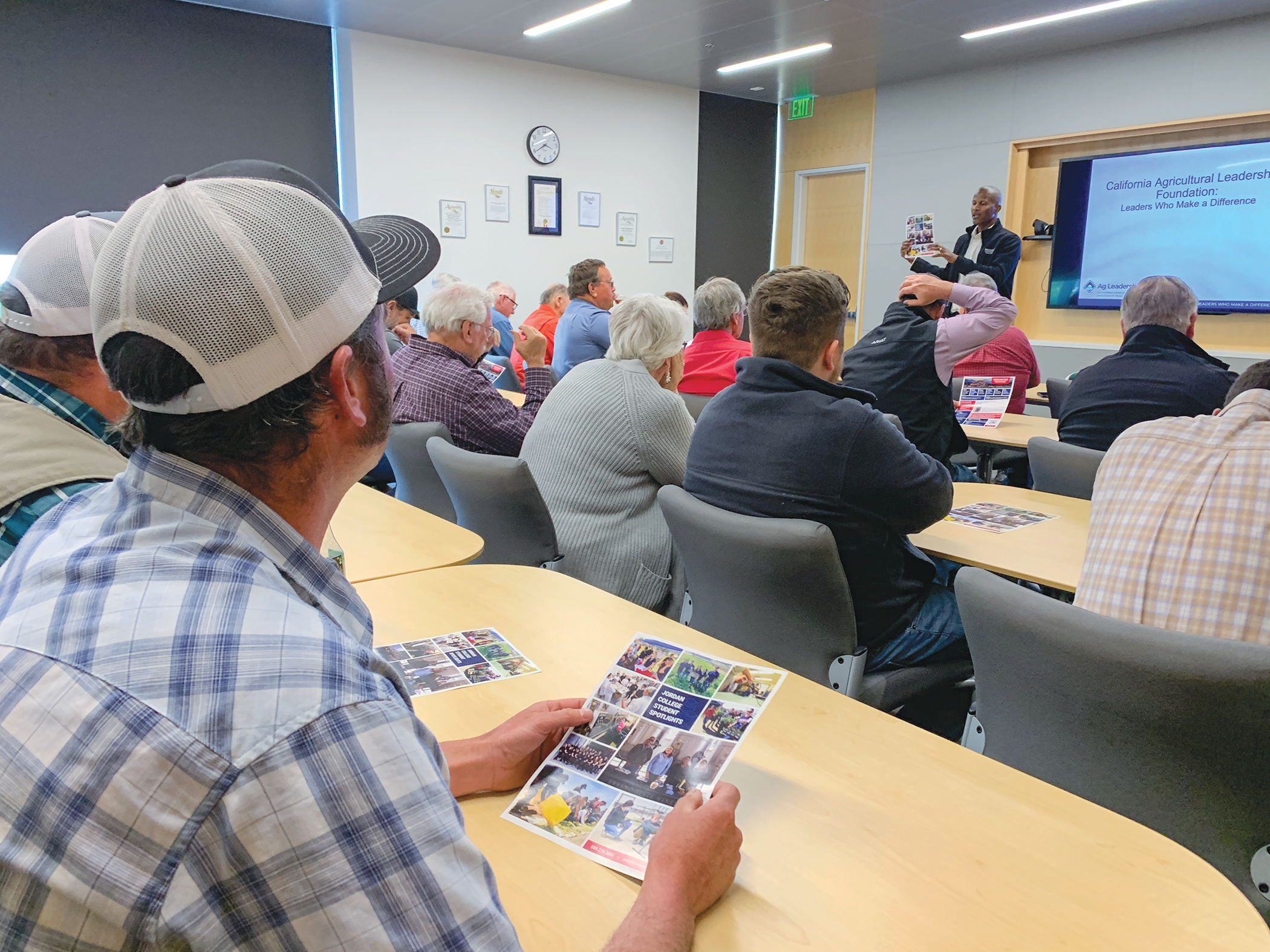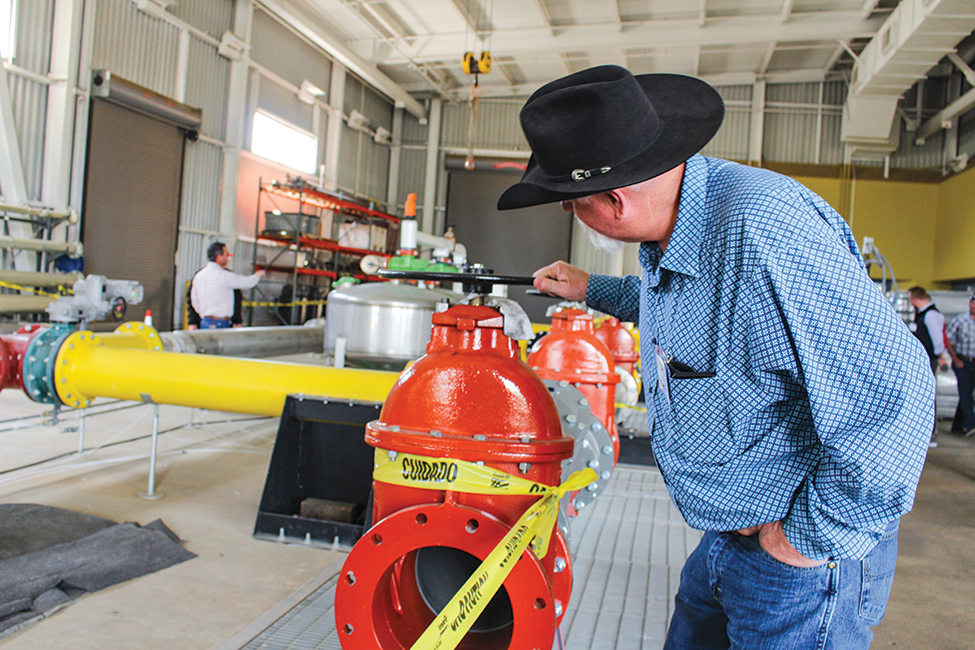Fresno State tour touts benefits for farms

For decades, advancements in research and technology from California universities and colleges have helped elevate America’s largest farming sector.

A California Farm Bureau delegation tours the campus winery in the Department of Viticulture and Ecology at California State University, Fresno. The tour celebrated the university’s partnership with California farmers and ranchers and its contributions to America’s largest agricultural economy.
Photo/Christine Souza

Photo/Christine Souza

Photo/Christine Souza
By Christine Souza
For decades, advancements in research and technology from California universities and colleges have helped elevate America’s largest farming sector. The partnership has aided state farmers in increasing efficiency, while supplying food, fiber and other commodities to markets across the U.S. and the globe.
To learn more about the agricultural education programs offered by California State University, Fresno, the California Farm Bureau board of directors, executives and staff visited the Central Valley campus last week for a university tour and introductions with academic leaders.
Amrith Gunasekara, director of science and research for the California Bountiful Foundation, the Farm Bureau’s research clearinghouse, noted important contributions of Fresno State’s Jordan College of Agricultural Sciences and Technology and the university farm. He lauded the role that the university plays as a critical resource for agriculture in the state.
“The agricultural universities in California—some of the best in the world—are working hard to do the scientific work to support our farmers and ranchers,” Gunasekara said. “They lead by conducting cutting-edge science and then translate that to real-world results that help everything from improving on-farm economics to new management practices that help with more efficient agricultural food production.”
California Farm Bureau President Jamie Johansson commented on Fresno State’s evolution from its beginning in 1911 with just 150 students to its standing today—as a university that is ascending in prestige, while providing 71 bachelor degree programs, 48 masters programs and three doctorate programs for 25,000 students.
“To date, more than 235,000 alumni have migrated to every state in the nation and across the globe,” Johansson said. “Fresno State has strong roots in agricultural research and has been a leading research and teaching university.”
Farm Bureau leaders received an introduction to the university’s higher education programs, including agricultural business, animal science, plant science and viticulture and enology.
The delegation heard from Mark Salwasser, farm supervisor for Fresno State’s 1,000-acre University Agricultural Laboratory. Salwasser highlighted the farm’s operational dairy, meat lab, poultry facility, orchards and more during a bus tour of the university farm.
“Not only do we have an equine breeding program but we have a boarding facility for those animals that gives some students learning opportunities,” said Salwasser, who also discussed the farm’s creamery. “We are very proud of our ice cream and cheeses. The Gibson Farm Market is our public store where we sell our products.”
Leah Groves, a Farm Bureau board member representing the California Farm Bureau Young Farmers & Ranchers Program, works as the vineyard technician at the Fresno State Winery, the nation’s first commercial university winery.
“Fresno (State) has always been known to be a production-oriented school,” she said of her alma mater. “But we’ve added more research development meant for growers, so the research is a reflection of what our members are going to see in industry.”
She added, “It is a really good experience for our board to see what’s happening in the areas of production agriculture and to meet the people that they might hire.”
Dean Rolston St. Hilaire of the Jordan College discussed “F3 Innovate,” a collaboration that received federal grant funds through the federal Build Back Better legislation. St. Hilaire said F3 Innovate is a unique opportunity for Fresno State.
With partners at the University of California, Merced, and UC Agriculture and Natural Resources, St. Hilaire said, “We’re going to be looking at ways in which we can have more of an agricultural technology or an ag-tech footprint here at Fresno State.” He said the research partnership is giving particular attention to “irrigation technologies and smart manufacturing, which are going to be important for the Central Valley.”
Leigh Bernacchi, executive director of the Valley Institute for Sustainability, Technology and Agriculture at UC Merced, said F3 funding “will also help launch a state-of-the-art agricultural technology hub.” She said it will “serve and connect farmers across the San Joaquin Valley to industry” to inspire new agricultural technology and farm innovations.
“Please bring me your problems so that we can ensure that our work is useful to you, and help us design solutions together with our broad network,” Bernacchi said. “I hope you will consider hiring our students as they leave the university with engineering and computer science skills and bring a different perspective to your teams.”
Farm Bureau board member Al Stehly, who farms in San Diego County, said, “Fresno State is very impressive. I’m a big fan of research. I like to see research being done, especially in conjunction with the students.”
Stehly noted the work happening at the university’s Center for Irrigation Technology, which functions as an independent testing laboratory and research facility. “Water is a huge input for all of California agriculture, and you’ve got to make sure that you’re using it appropriately and effectively,” he said. “With all of the new sensing devices, it is really good to have somebody else vet them for our use on the farm.”
Ryan Jacobsen, CEO of the Fresno County Farm Bureau and a Fresno State alumnus, welcomed the agricultural leaders to Fresno. “It’s a fantastic opportunity to see what our future crop of leaders are learning and the hands-on opportunities that they’re being given here at Fresno State to be prepared to go straight out into the field,” Jacobsen said. “Being able to show that to Farm Bureau leaders and let them get a better glimpse of what life is like for a student down here is beneficial for everybody.”
California Farm Bureau First Vice President Shannon Douglass, founder of California Agricultural Jobs, a service that connects California employers with candidates seeking careers in agriculture, said she was impressed by the agricultural education and research opportunities at Fresno State.
“It was great to hear about all the work Fresno State is doing to better prepare the next generation with career opportunities in California agriculture,” Douglass said. “The work that they are doing to foster innovation—especially in water technology—is impressive.”
(Christine Souza is an assistant editor of Ag Alert. She may be contacted at csouza@cfbf.com.)




